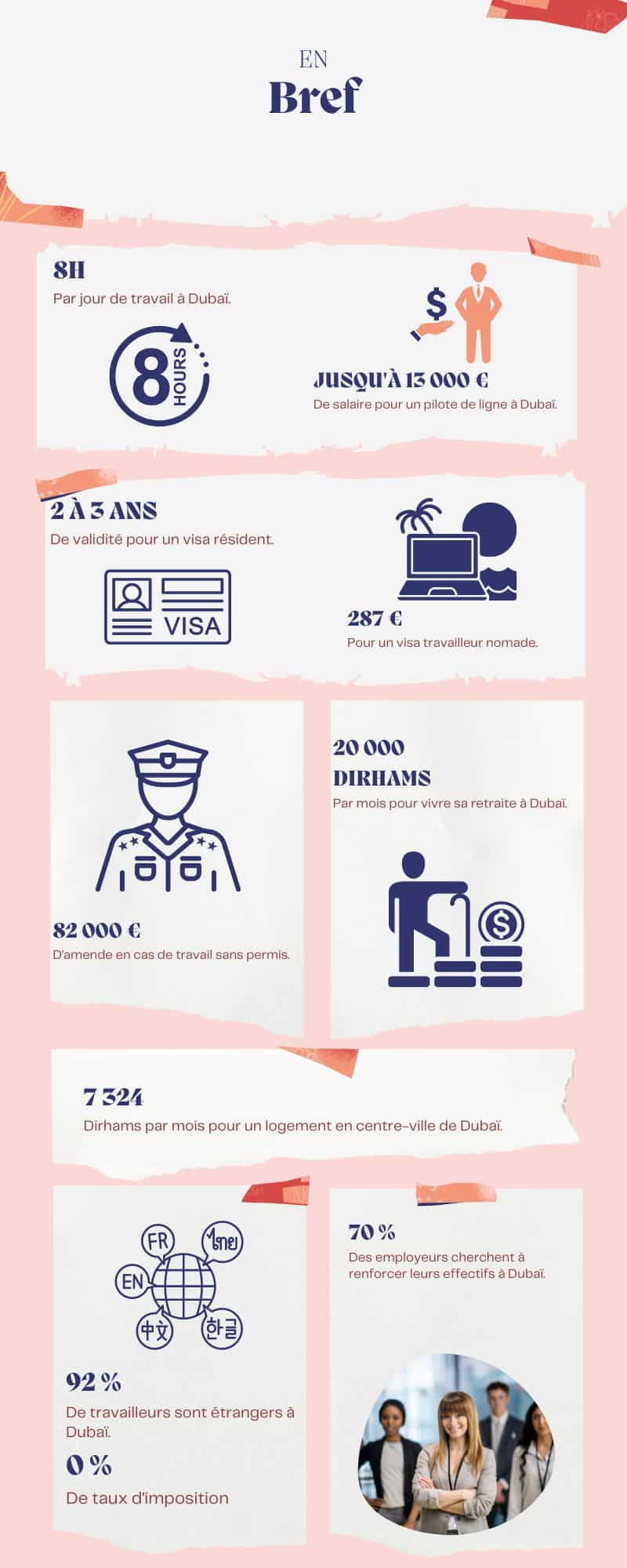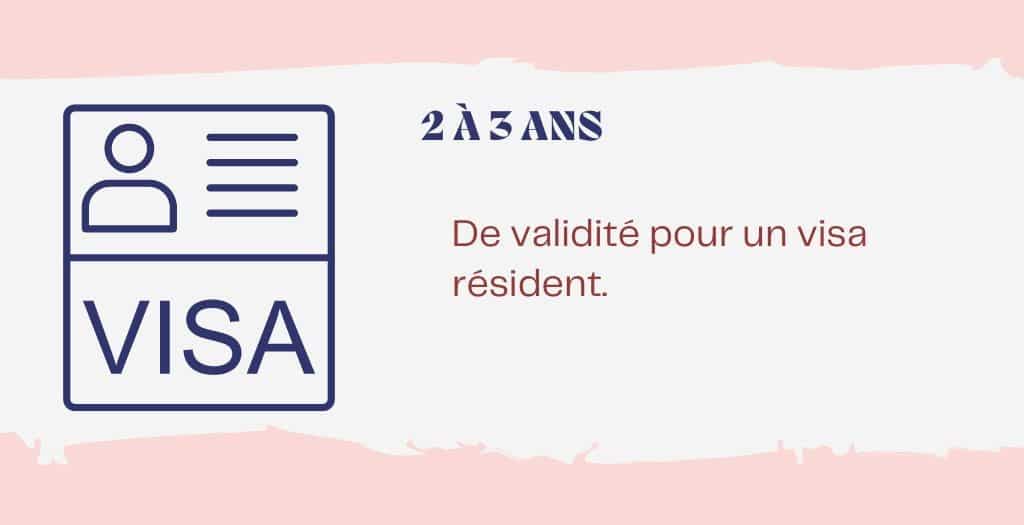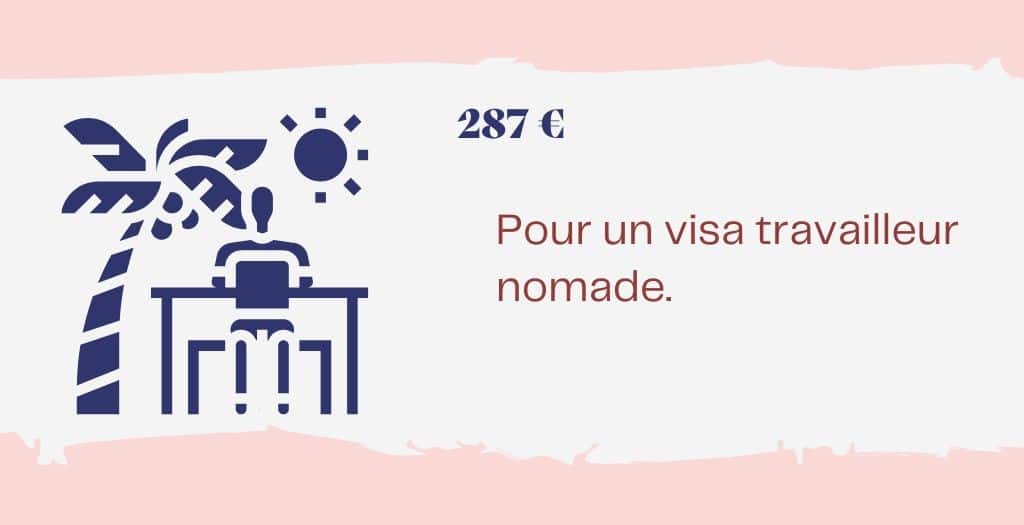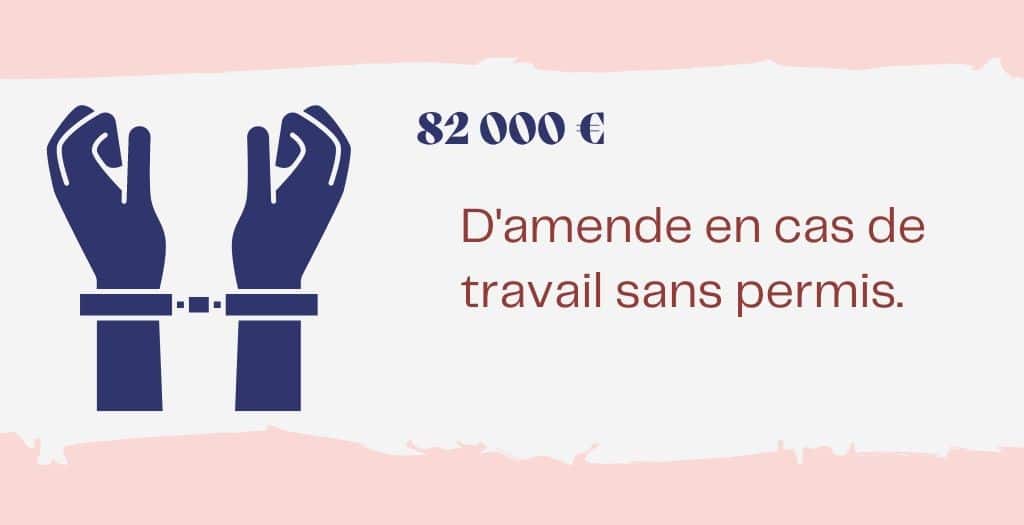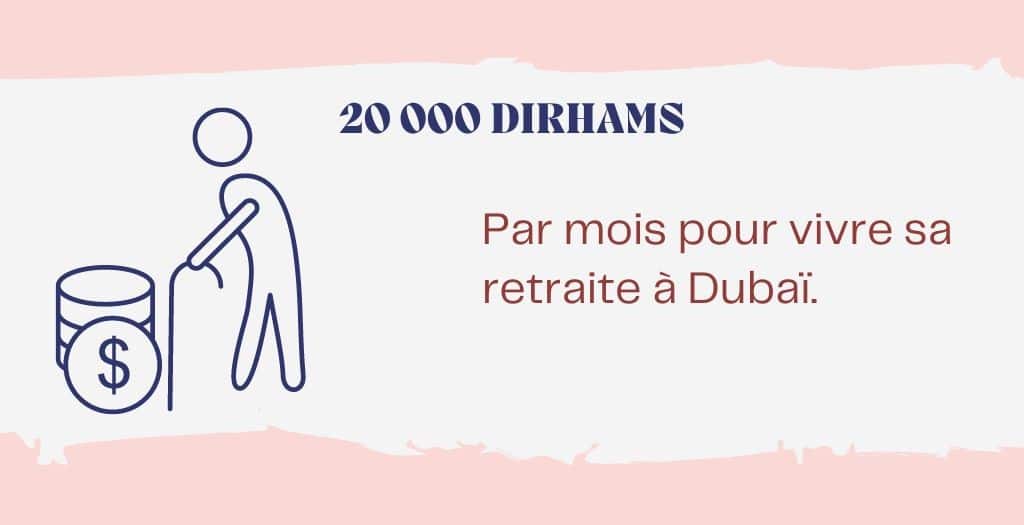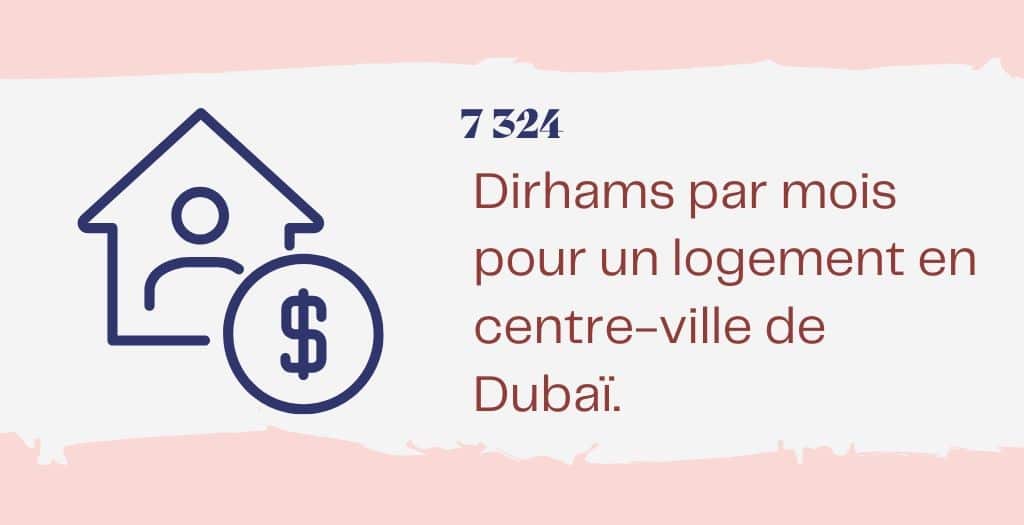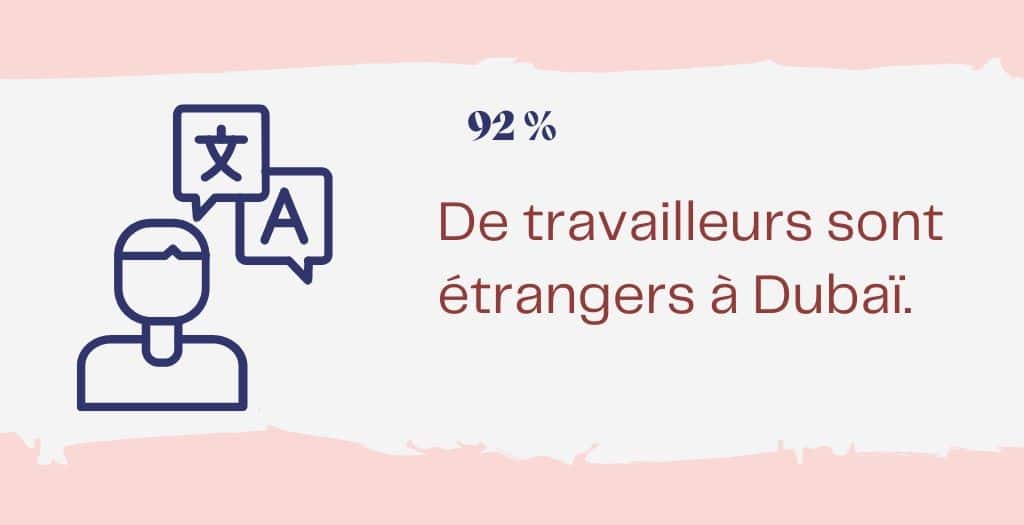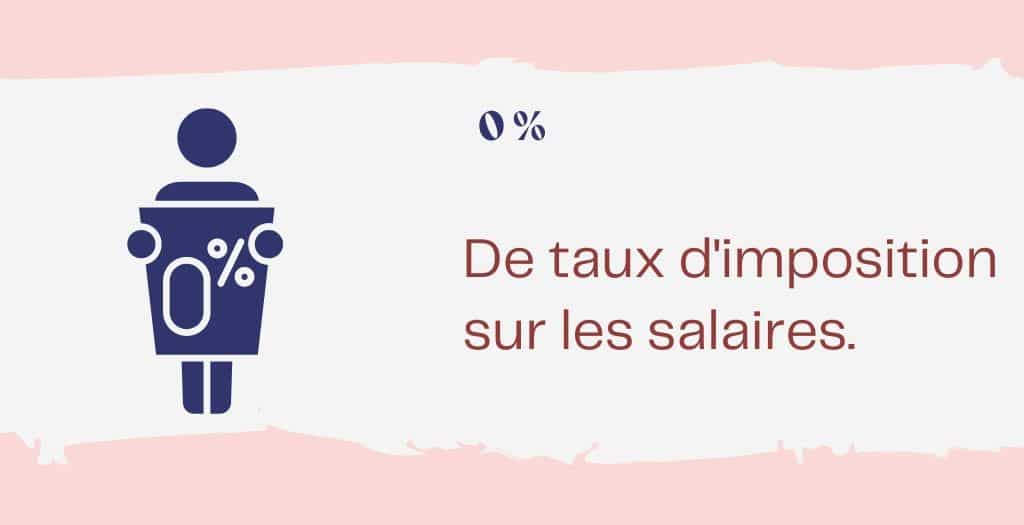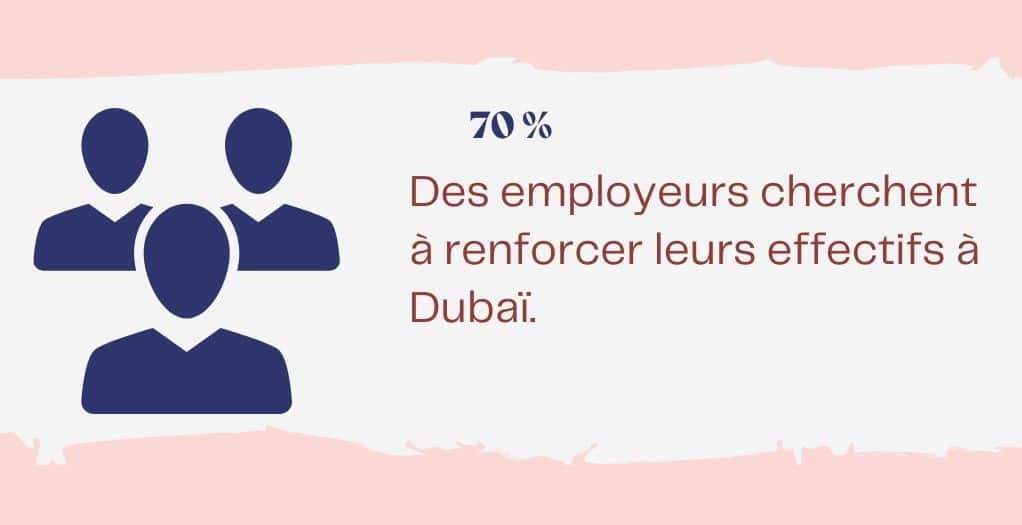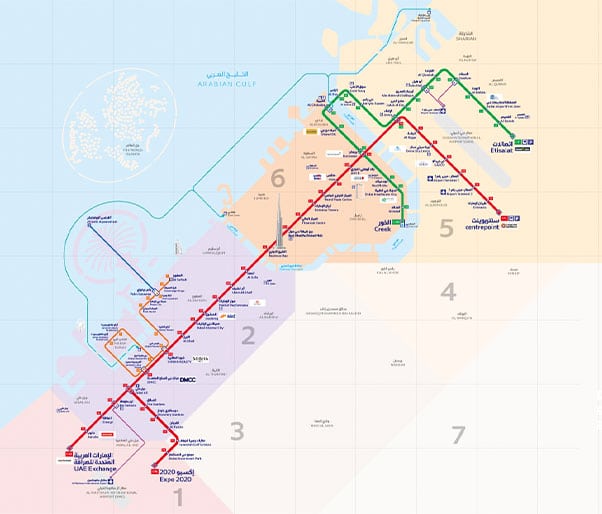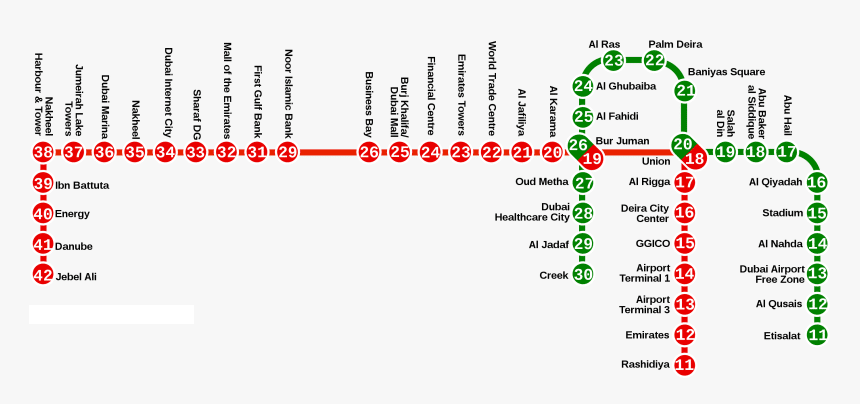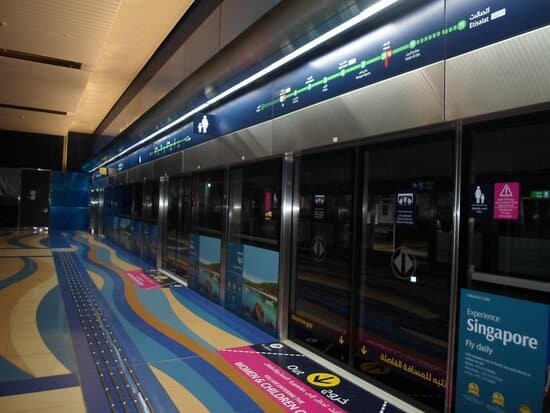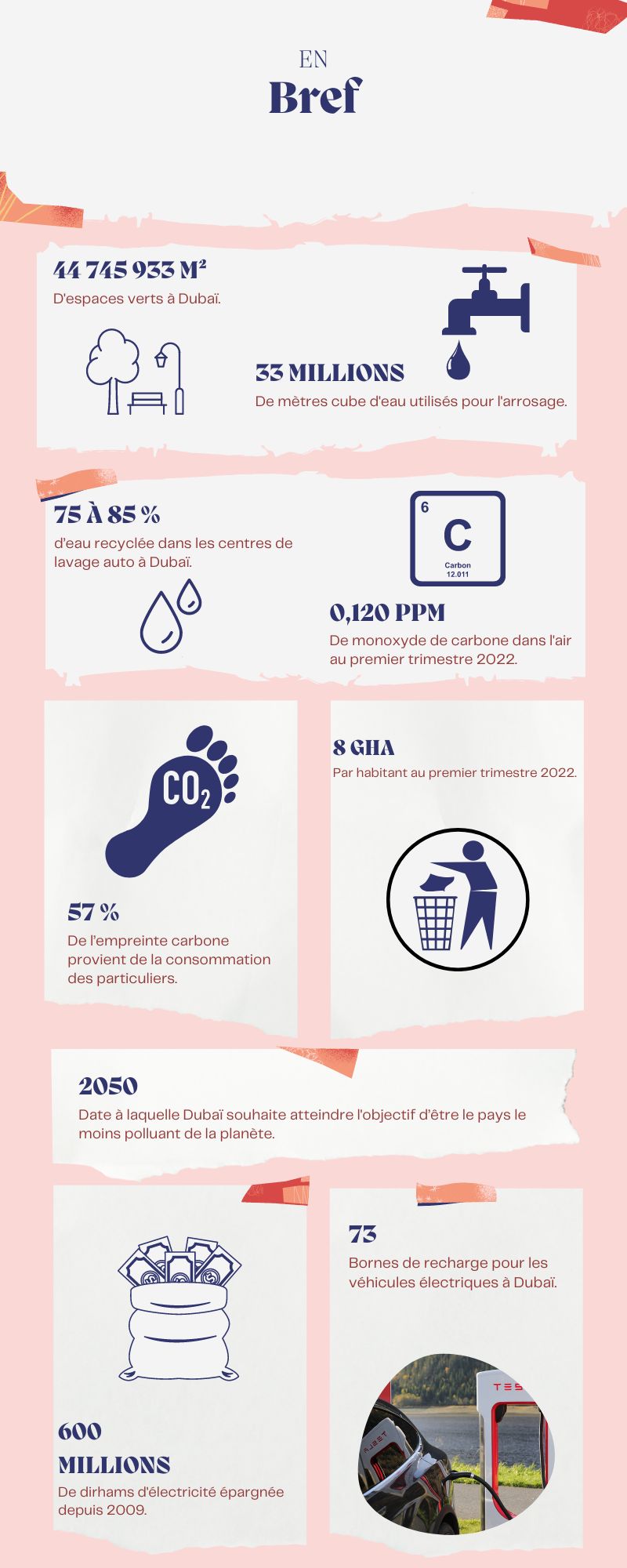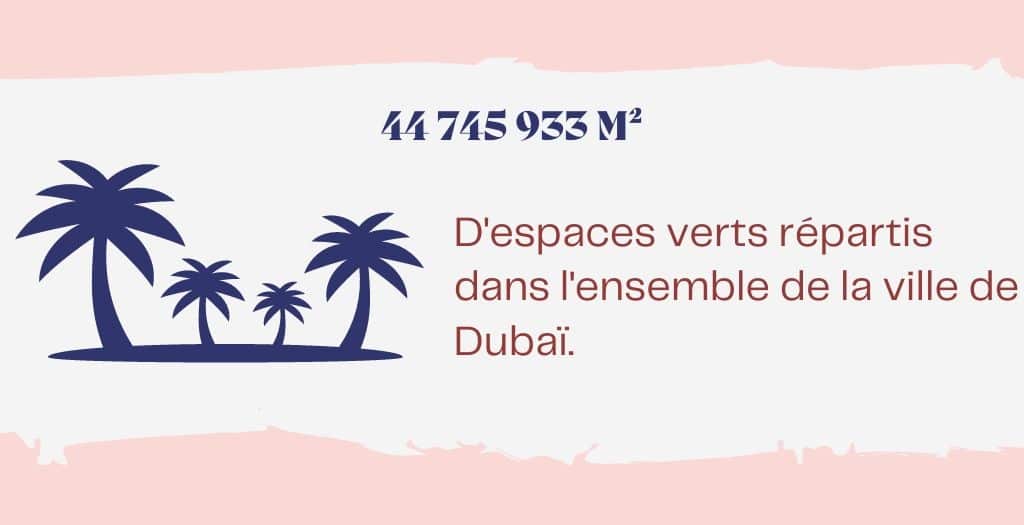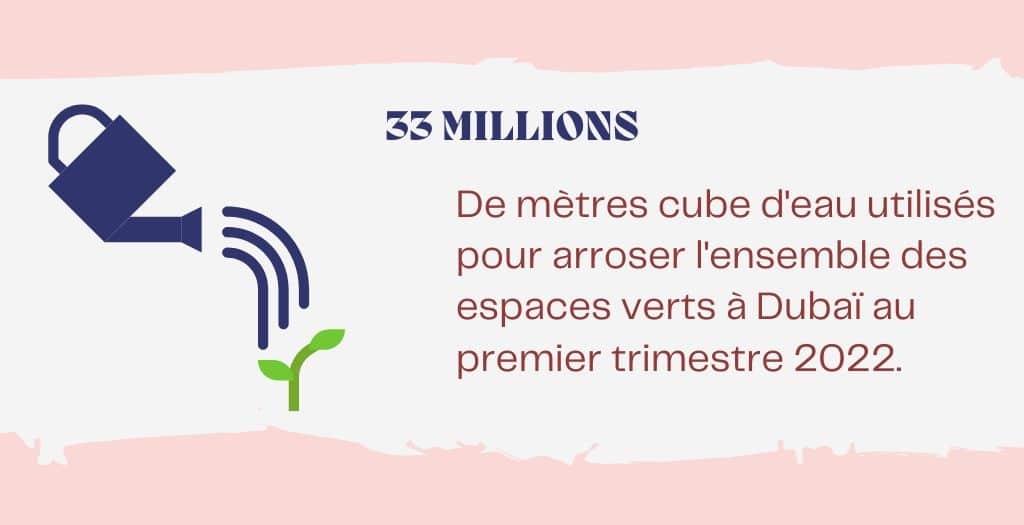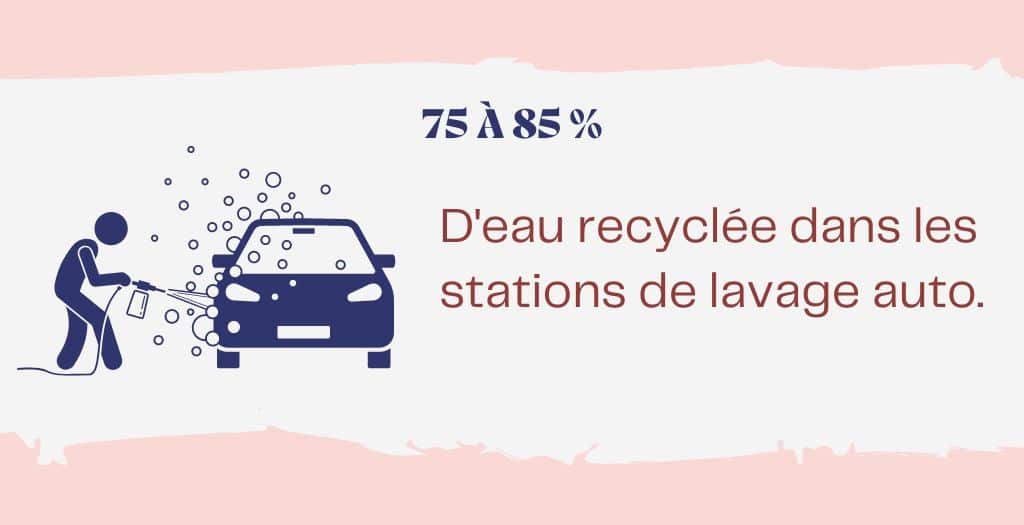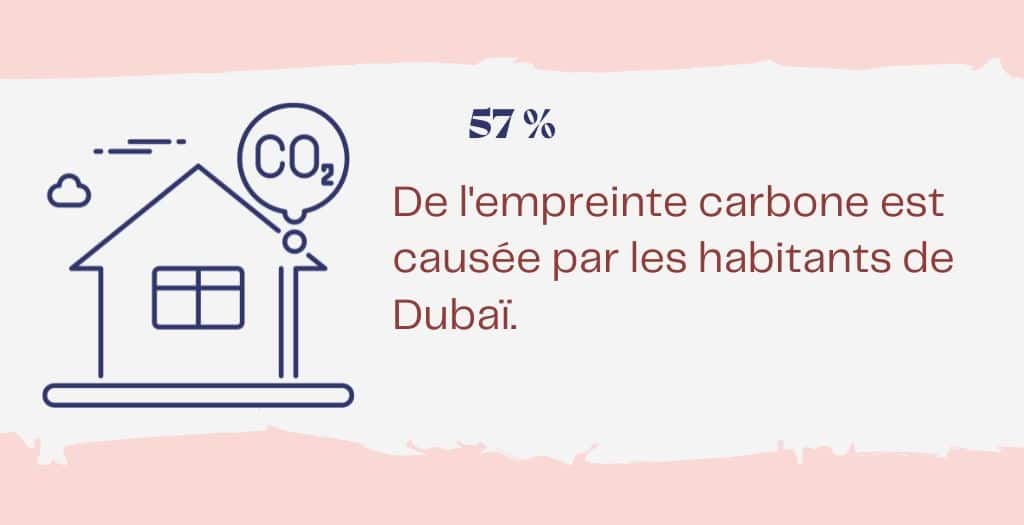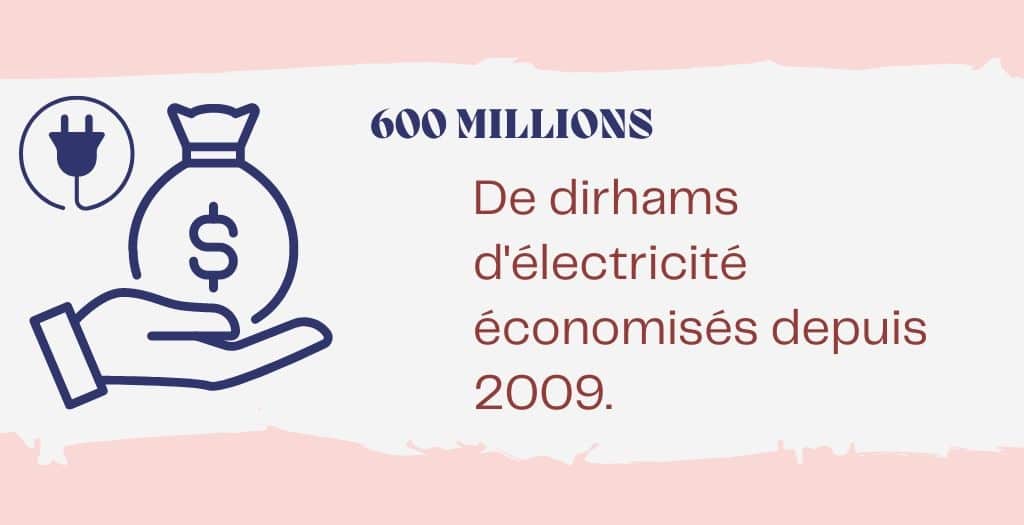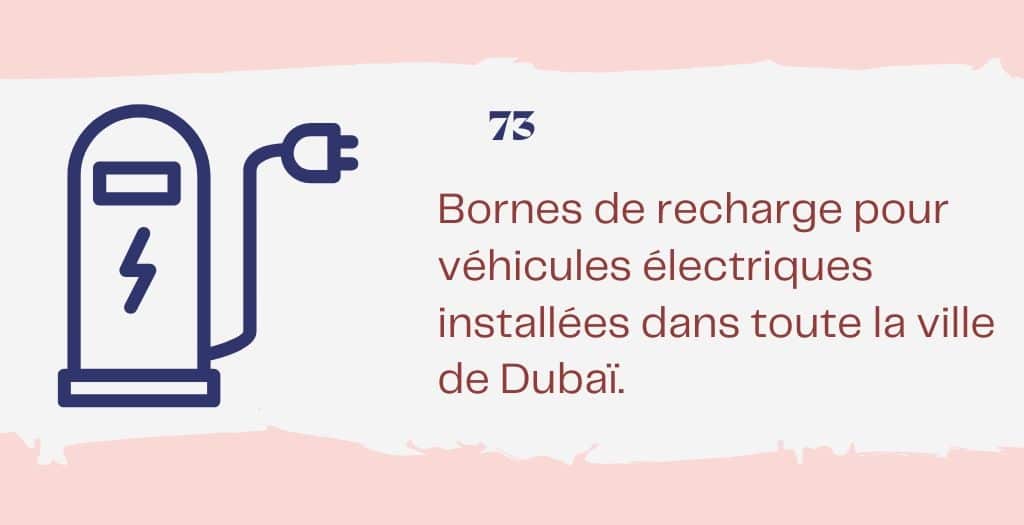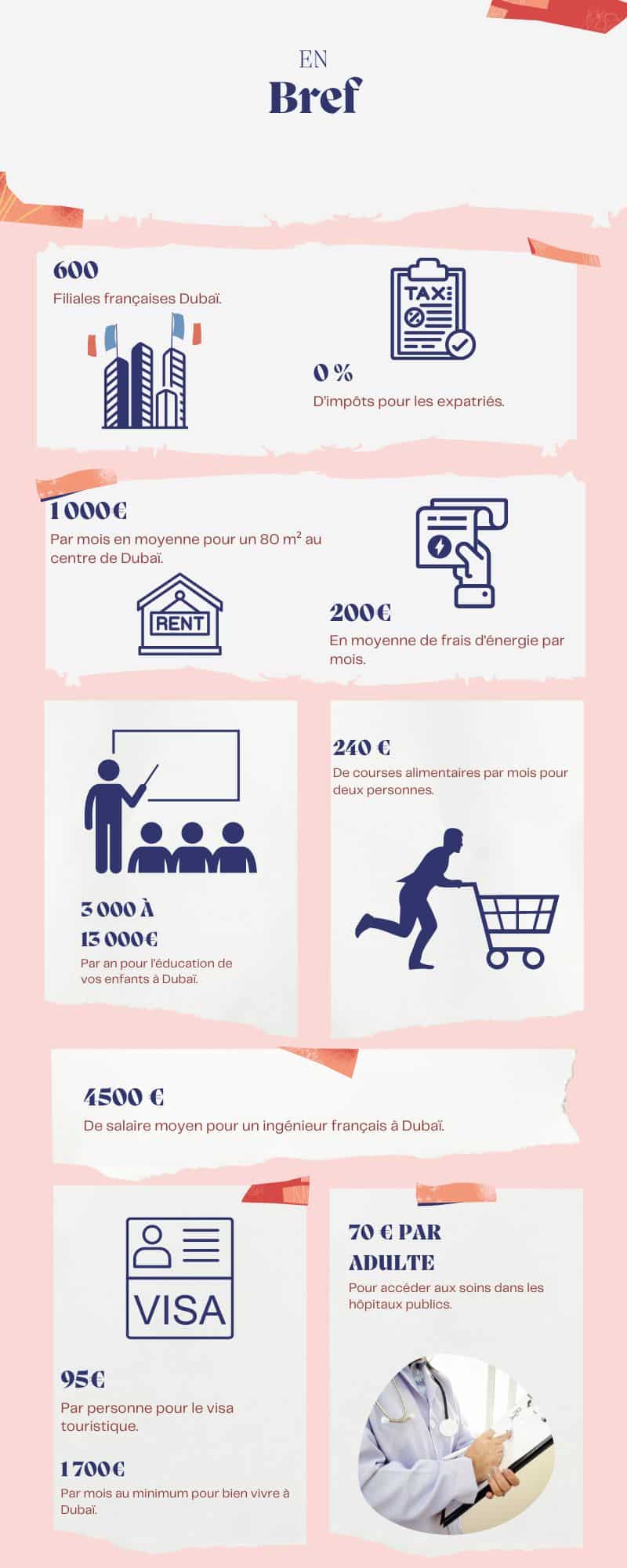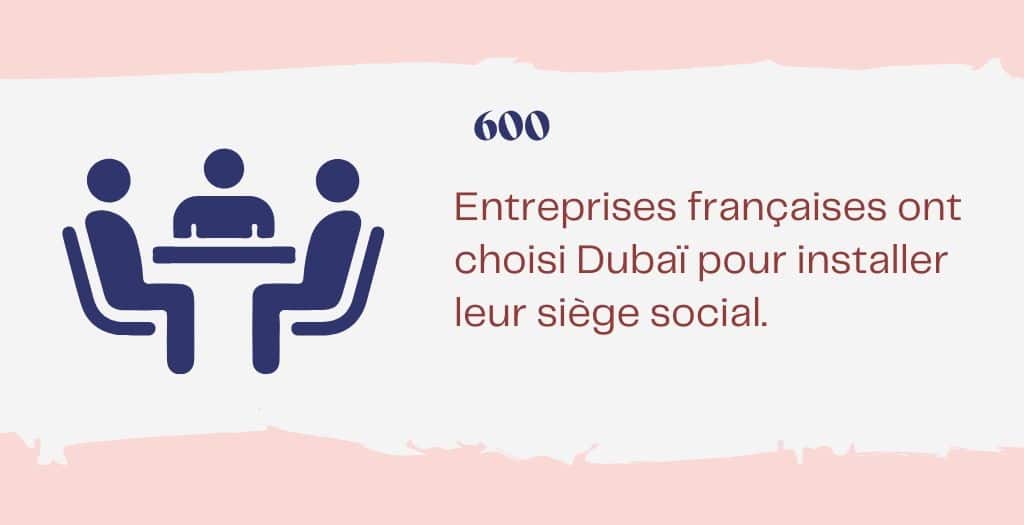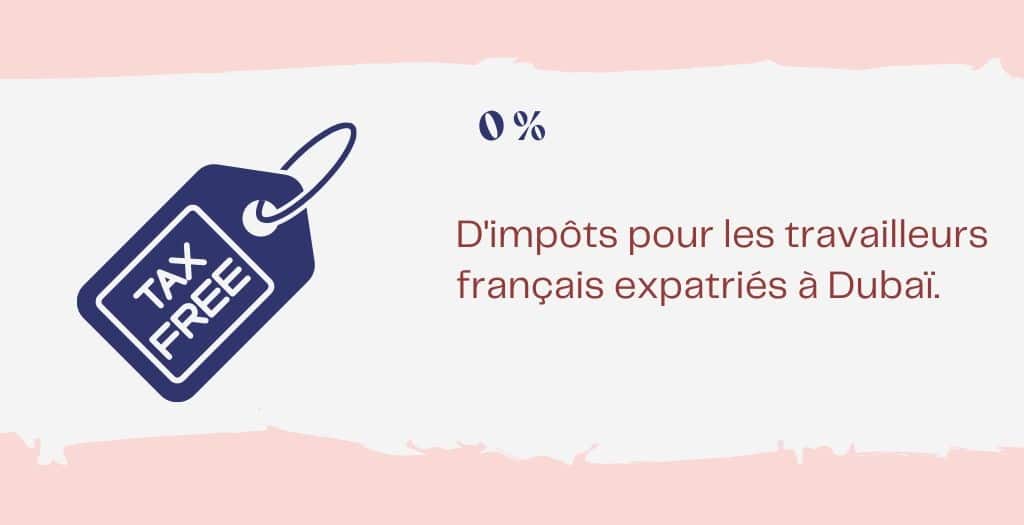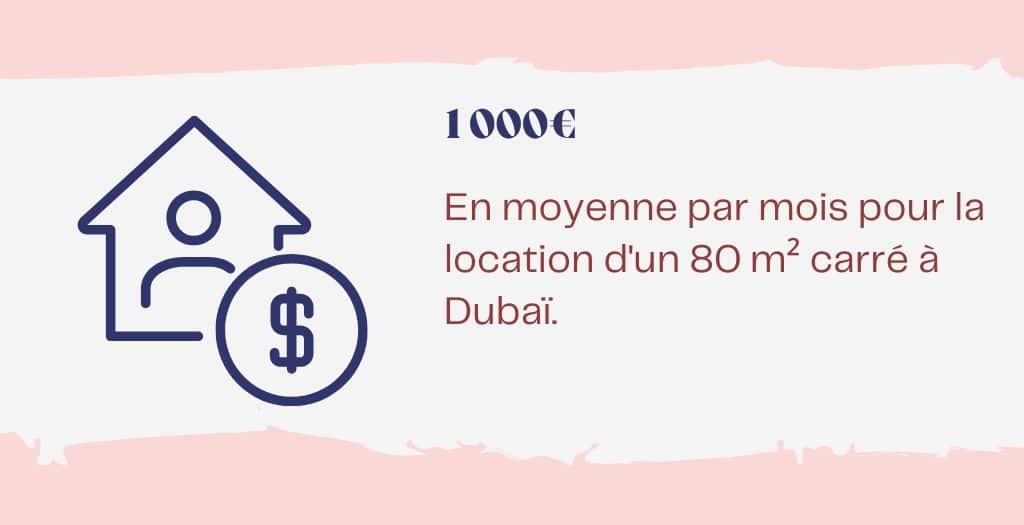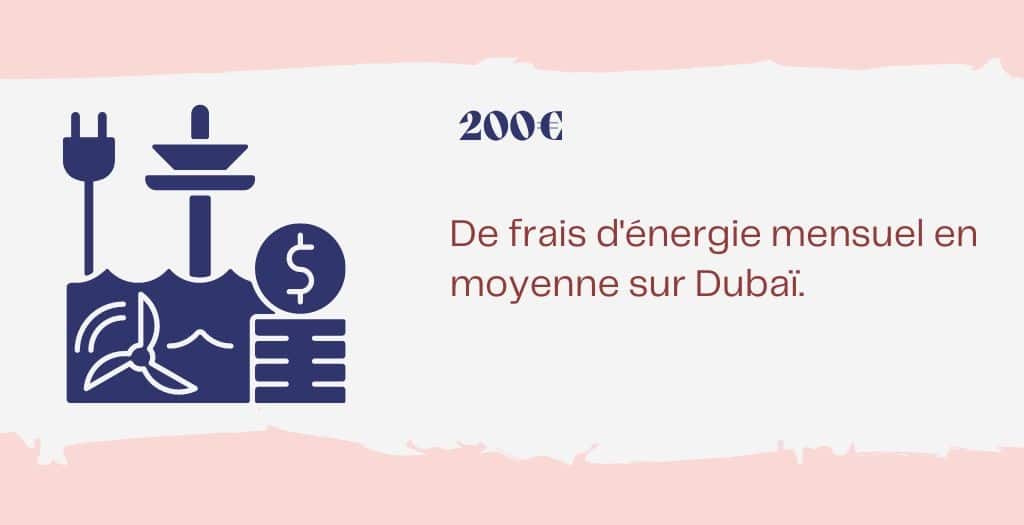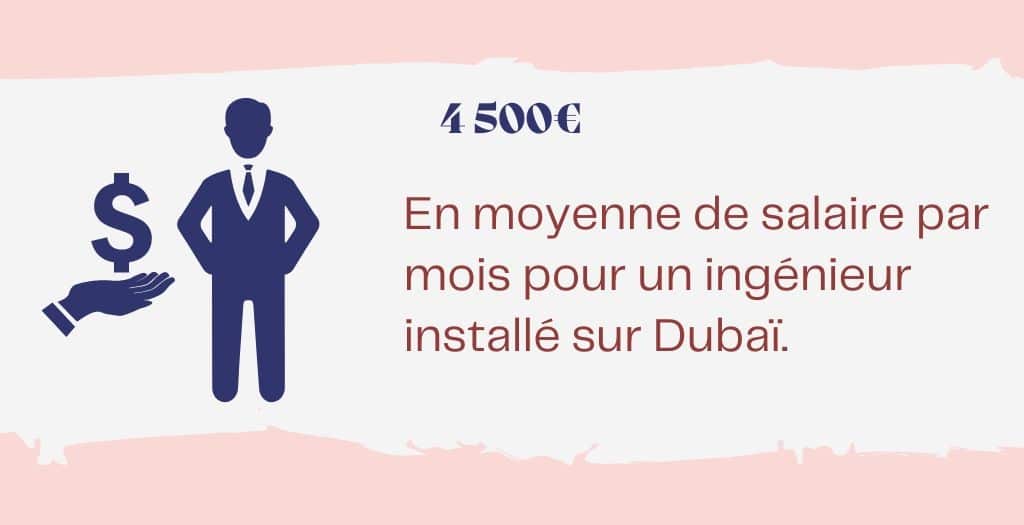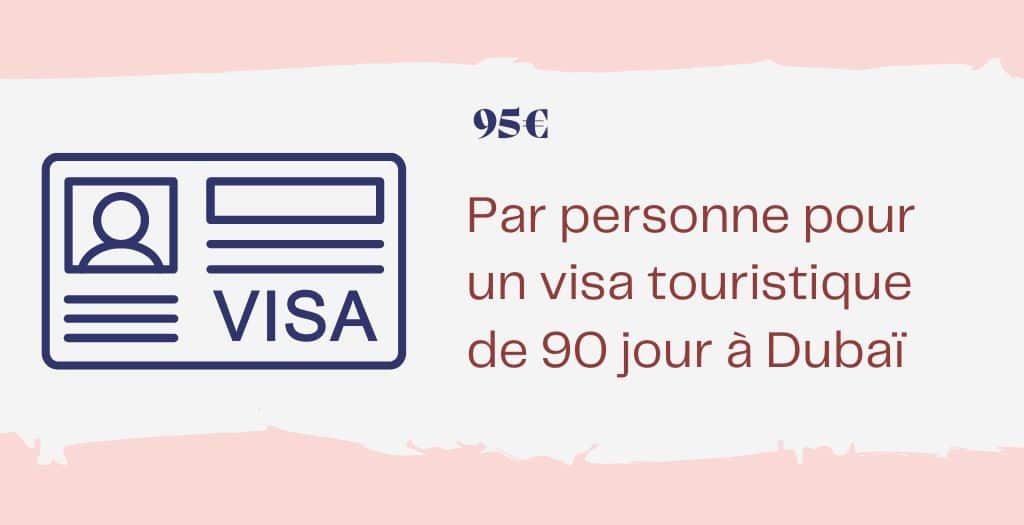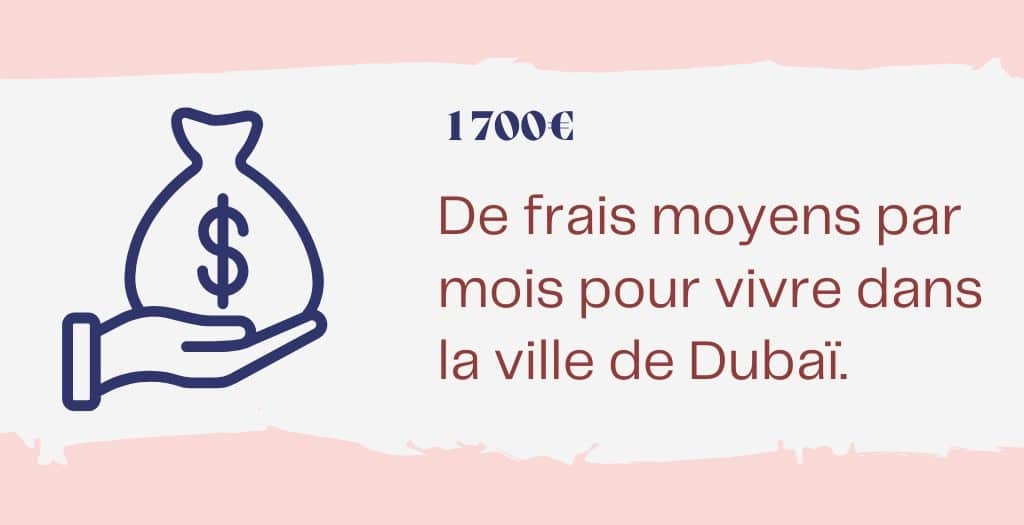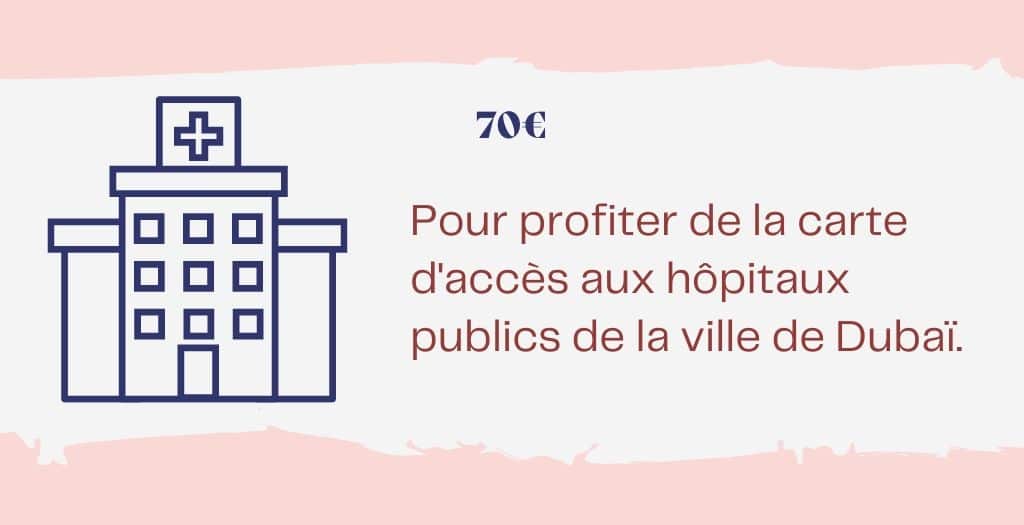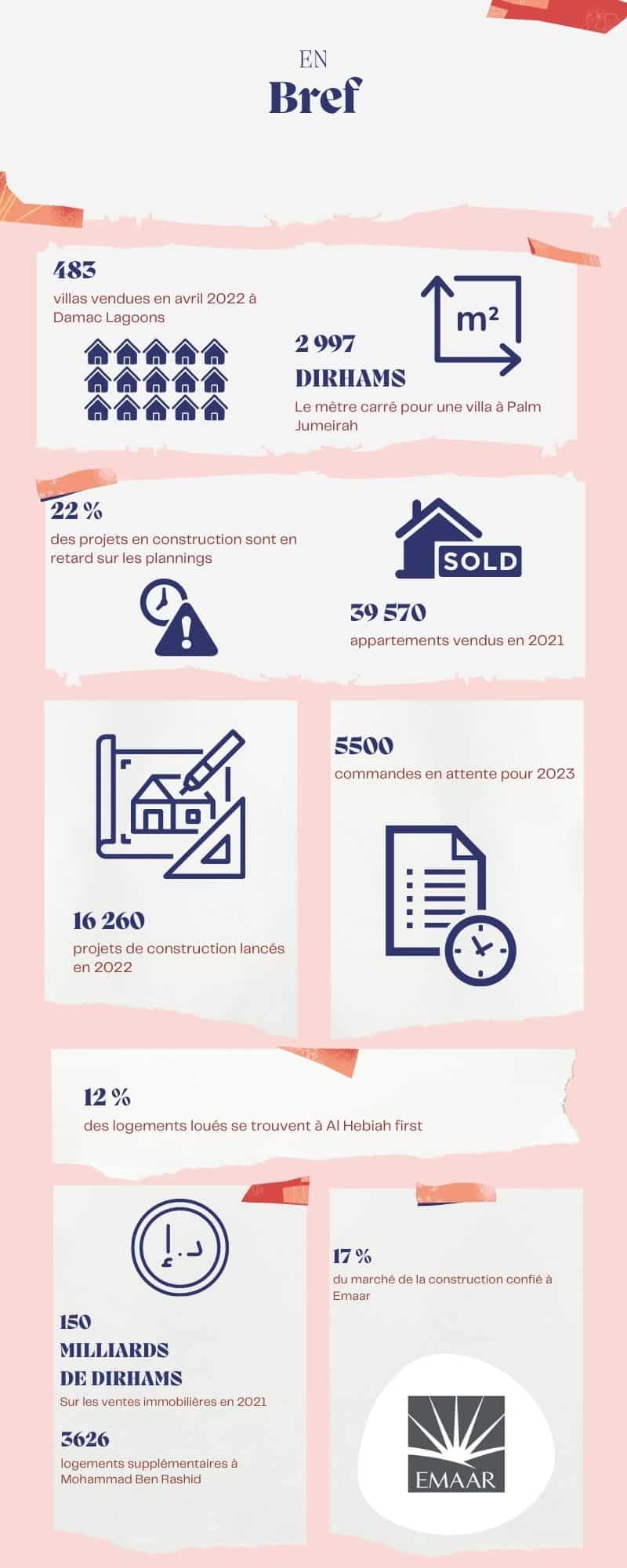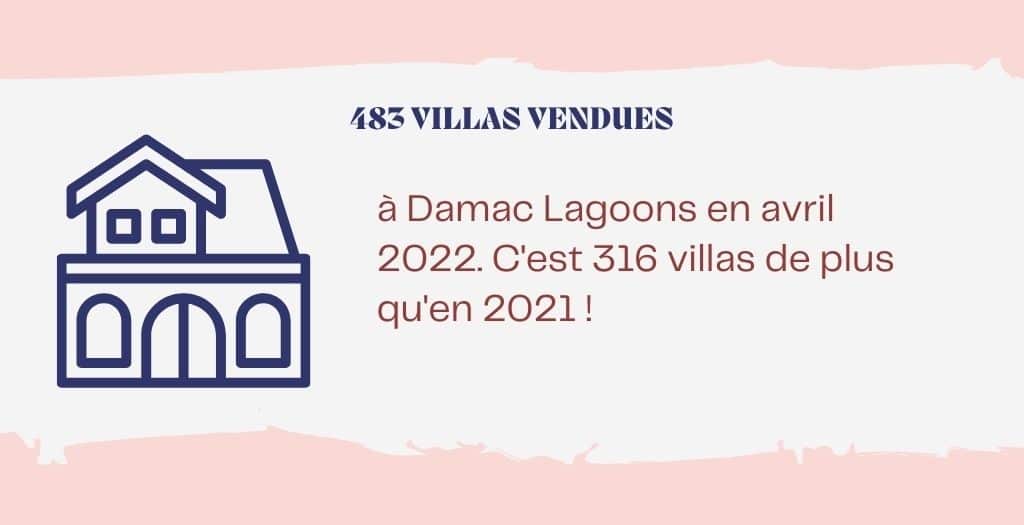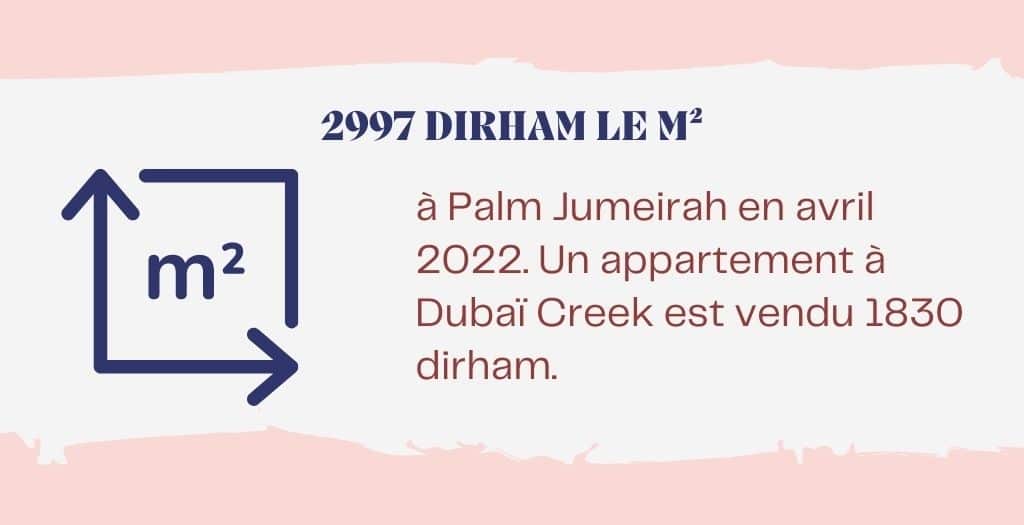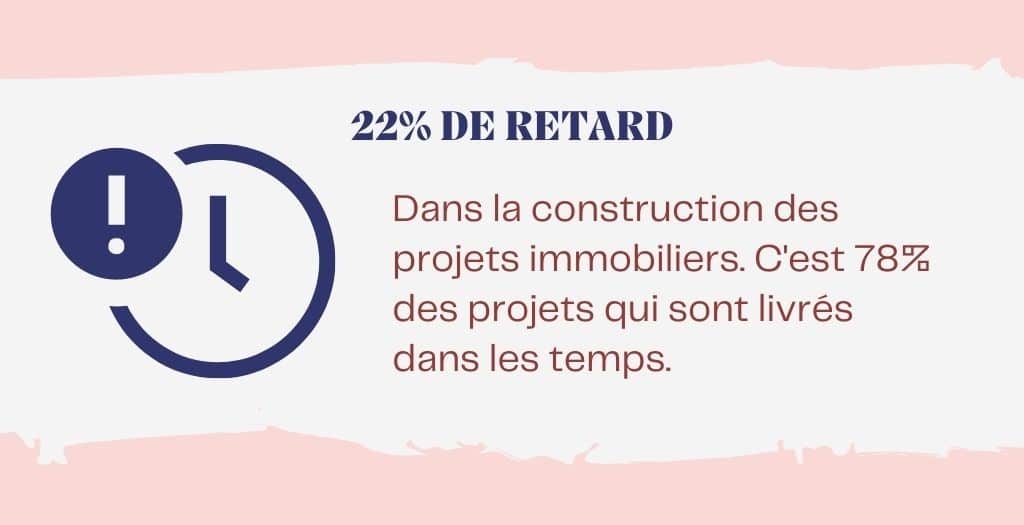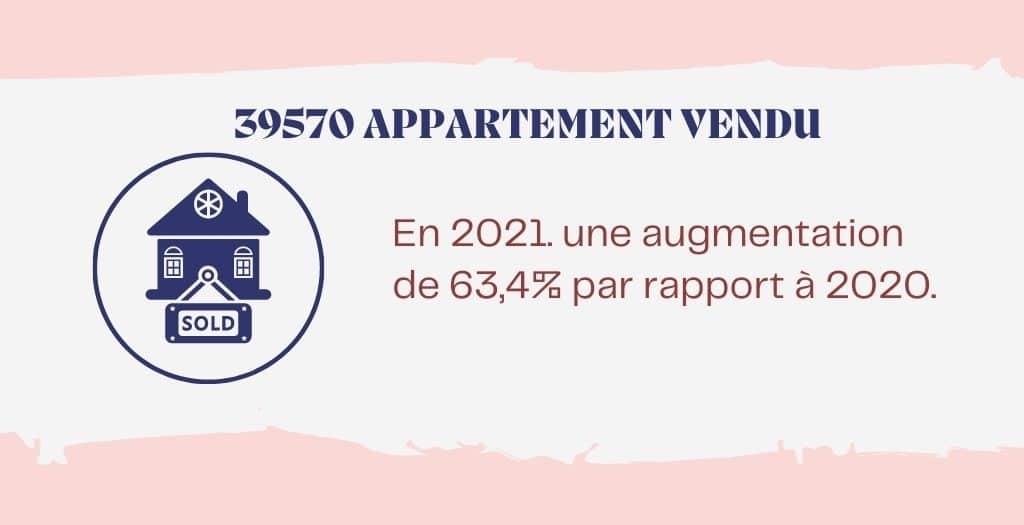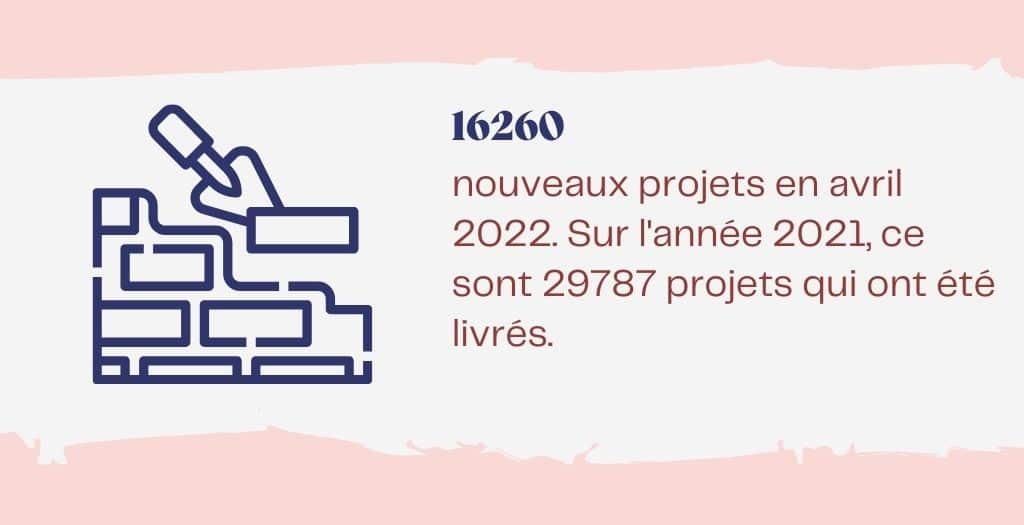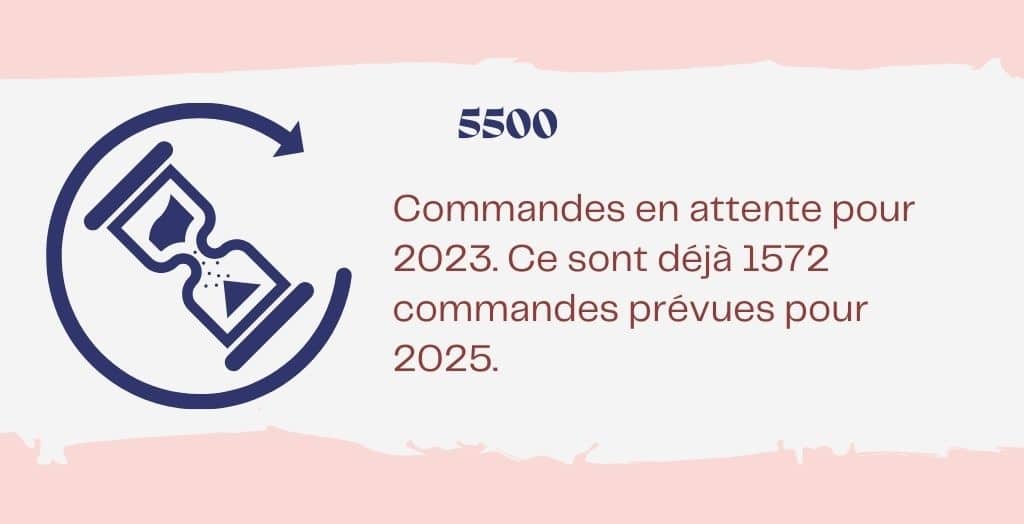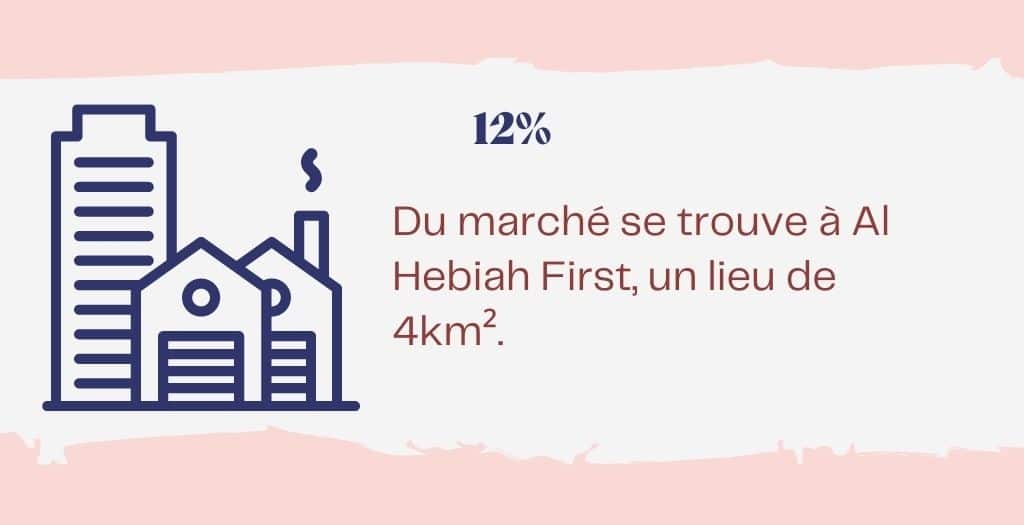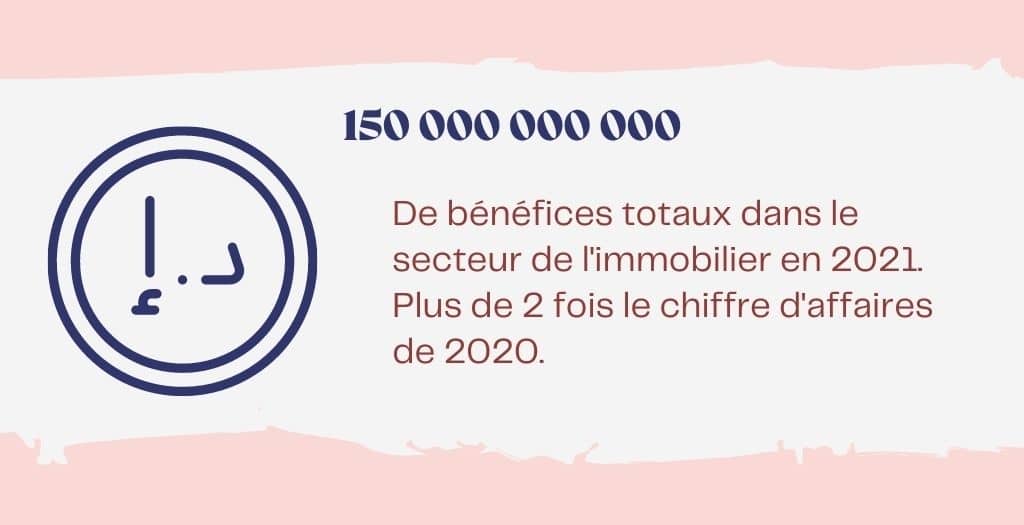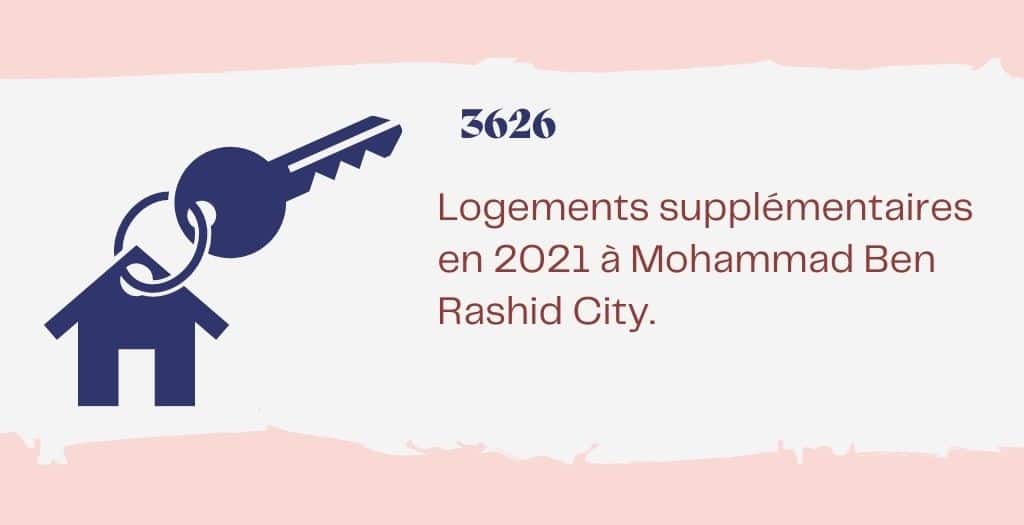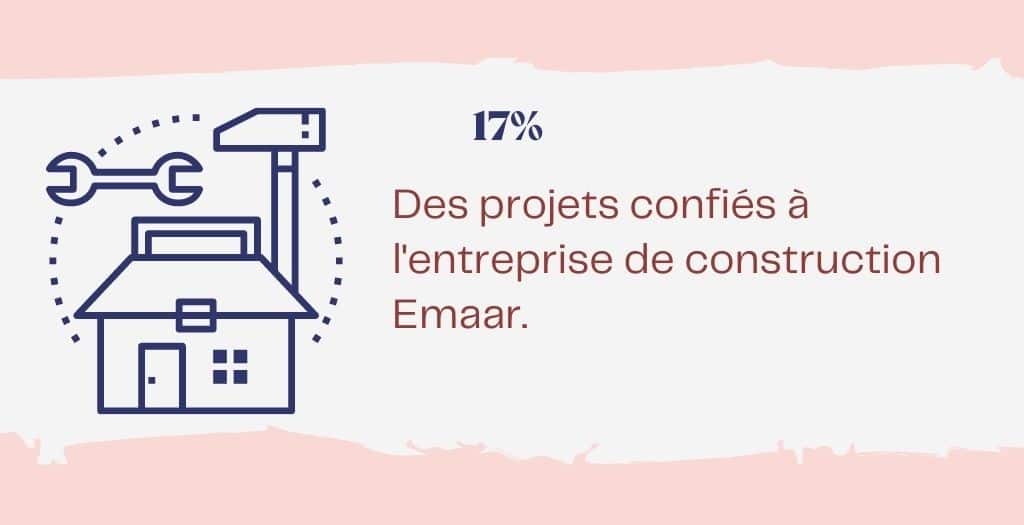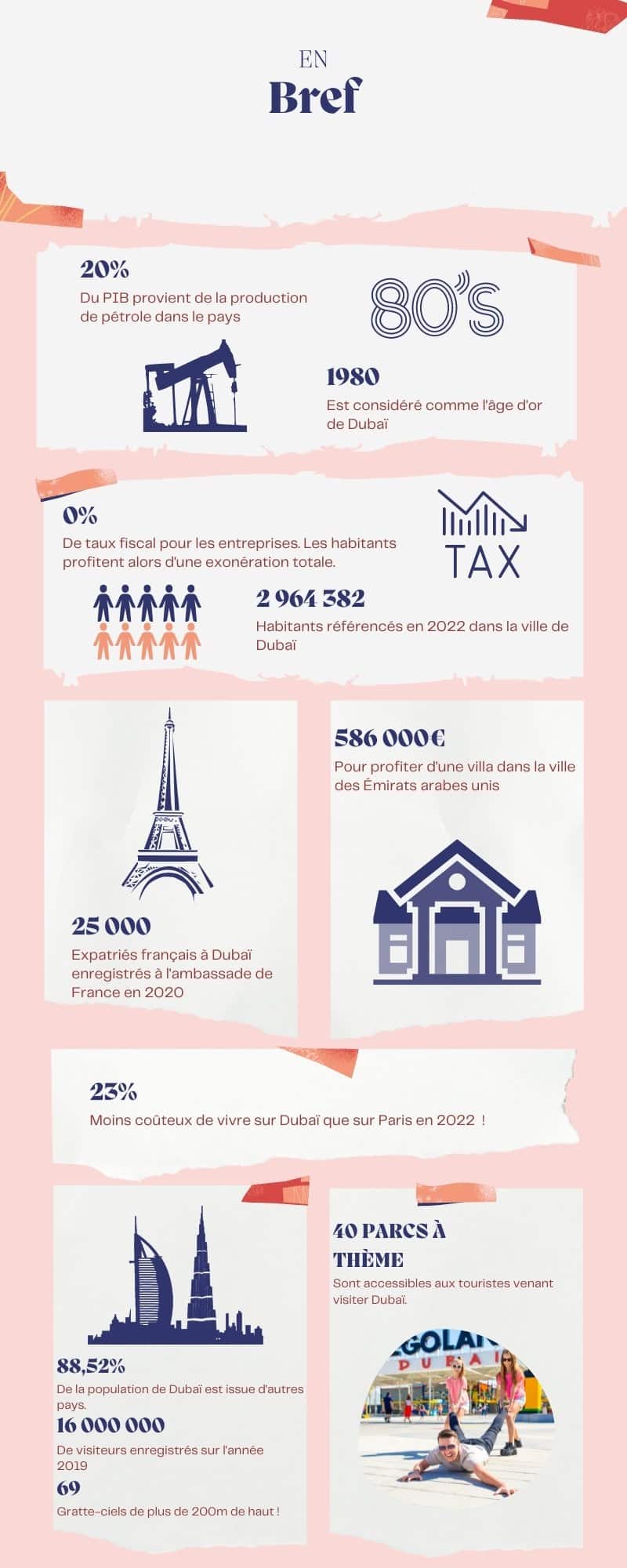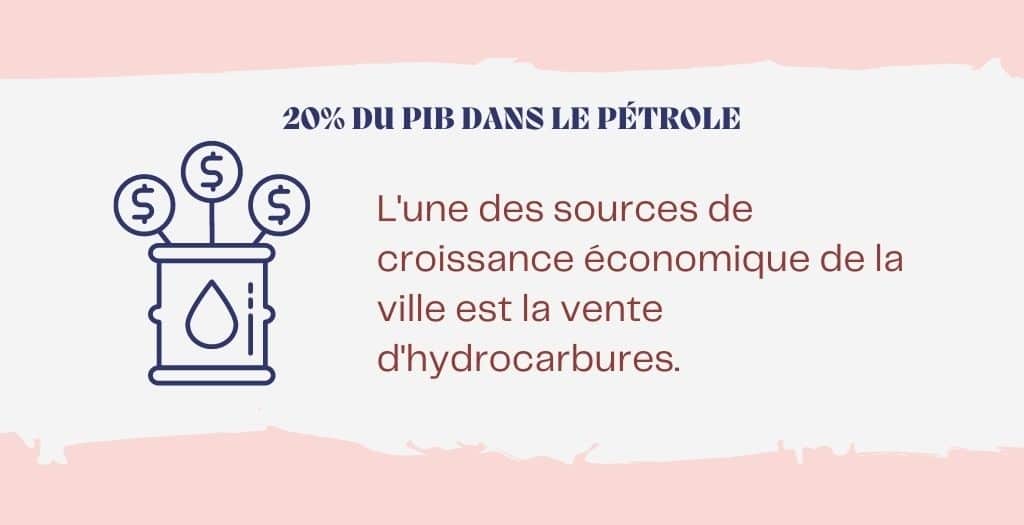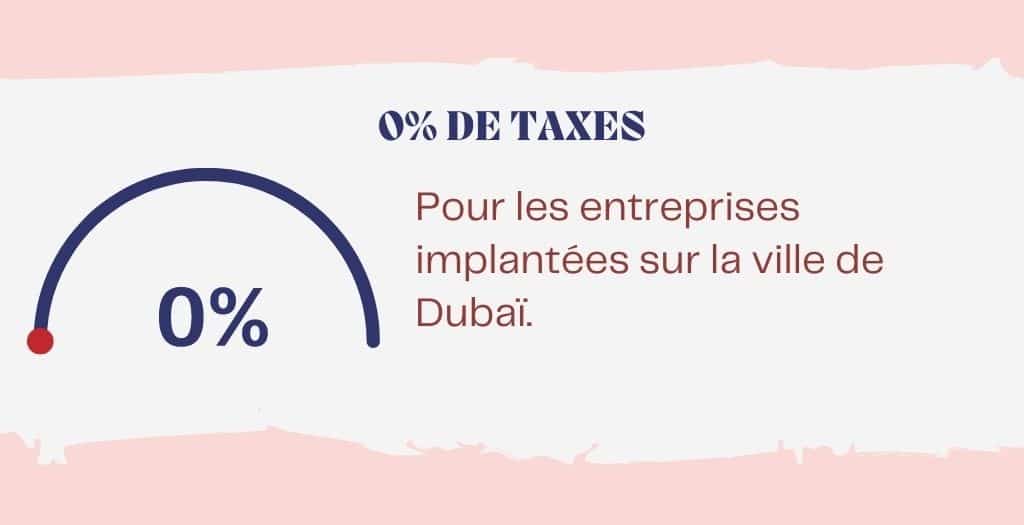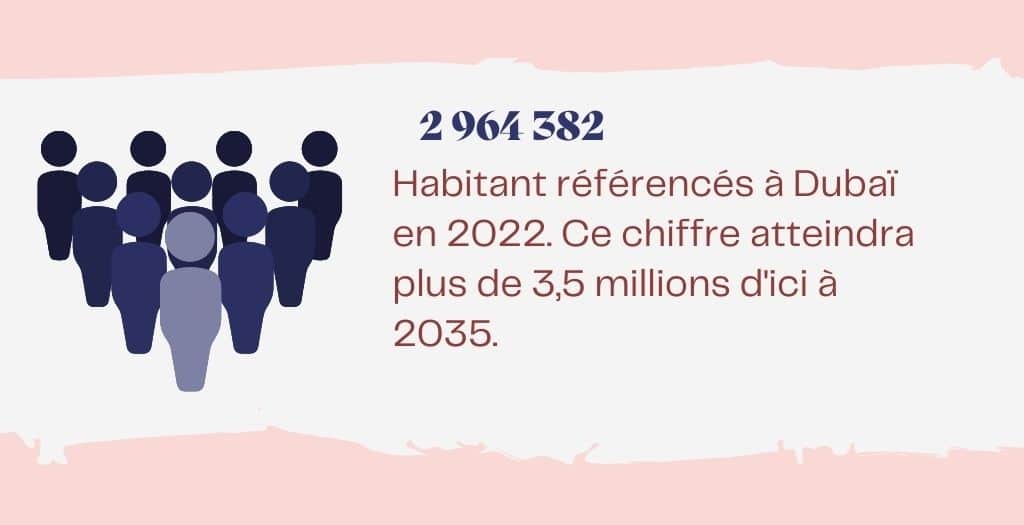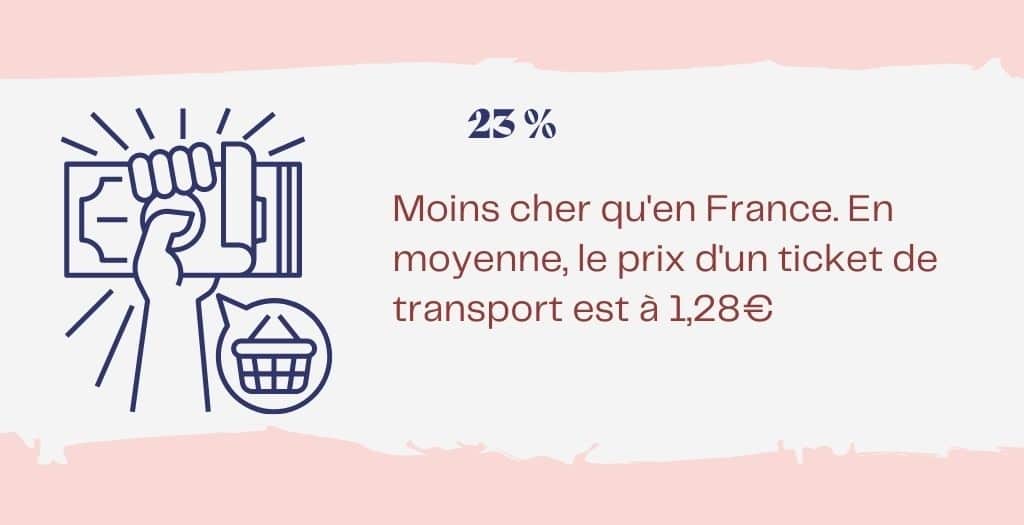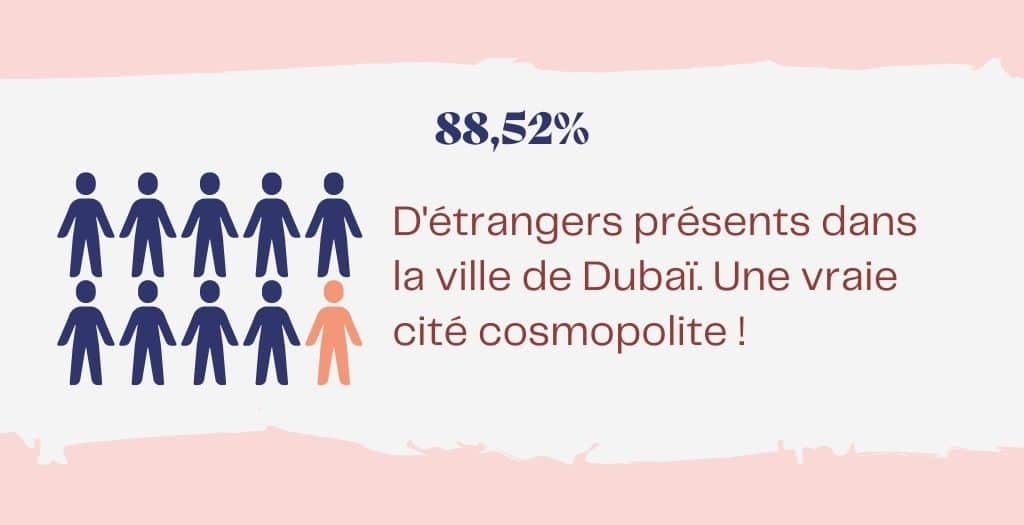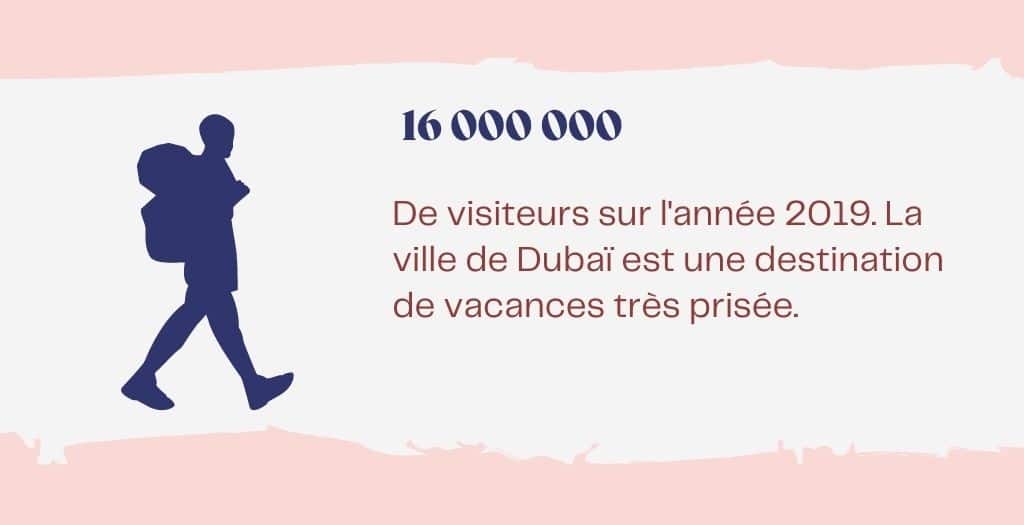Working in Dubai is the dream of many Europeans. In addition to 0% in income tax, the city offers many advantages. Today, we take a look at Dubai's employment figures.
Table of contents
- The average working day is 8 hours
- Salaries vary according to profession
- A visa valid for 2 to 3 years
- 287 € for a nomadic worker visa
- Illegal employment can result in fines of up to 82,000 euros in Dubai
- 20,000 dirhams for a retiree in Dubai
- 7,324 Dirhams for accommodation in the city
- Foreigners in the majority in Dubai
- A tax rate of 0%
- Over 70% of employers in Dubai are looking to strengthen their workforce
The average working day is 8 hours
The working day lasts an average of 8 hours. In tourism companies, the working day is sometimes 9 hours long. The working week begins on Sunday. Unlike our calendar, weekends in Dubai are Friday and Saturday. Employees benefit from an average of 30 vacation days per year.
As a result, Dubai enjoys a work habit almost equivalent to that of France. However, salaries are much higher in this city in the United Arab Emirates.
Salaries vary according to profession
There is no official minimum wage in the United Arab Emirates. Estimated income levels depend on multiple factors, including qualifications, experience, education, nationality and position held.
The average salary in the United Arab Emirates in 2021 was around 4,000 to 5,000 euros per month. A maid or nanny can earn between 200 and 800 eurosand an airplane pilot earns between 8,000 and 13,000 euros.
To take advantage of well-paid jobs, it's important to use the right visa.
A visa valid for 2 to 3 years
A residence visa is valid two years in the private sector, three years in the public sectorYou should be able to renew it indefinitely. Once you have your residence visa, you'll be able to open a bank account and obtain a driver's license, as well as sponsor visa applications for your immediate family.
Visa processing takes approximately one month. With the resident visa, the employee receives a local identity card. The resident visa is cancelled on termination of the employment contract, but within 29 calendar days the applicant can legally remain in the country to seek new employment.
In terms of fees, a refundable deposit of AED 5,000 per person is required, plus around AED 360 for the visa itself and between AED 200 and 300 for medical tests.
Other types of visa are available if you work remotely.
287 € for a nomadic worker visa
Dubai has also launched a "nomadic worker" visa program. The program allows you to travel to Dubai and stay for up to a year as a freelancer or for your employer abroad.
You can rent a house in Dubai, have access to Dubai schools if you have children, utilities and live like a local. You are officially allowed to work. However, you are not allowed to find a job in Dubai. Visa costs €287. In addition, you must have health insurance in Dubai.
Whatever you do in Dubai, we strongly advise against working without a visa. It could result in substantial fines.
Illegal employment costs up to 82,000 euros in fines in Dubai
Illegal employment in the United Arab Emirates carries many risks for both parties. The penalty for the employer is 2 months' imprisonment and a fine of a fine of up to 82,000 euros. The consequences for the employee are equally unpleasant. Indeed, it is possible to be jailed for 2 to 3 months, deported and fined 27 euros for each day of illegal stay in the country.
By staying within the law, you risk nothing to live in Dubai. What's more, you can also retire here.
20,000 dirhams for a retiree in Dubai
From September 2020, expatriate residents of Dubai can apply for the "Retirement in Dubai" program.
Under this program, eligible residents aged 55 and over can apply for a retirement visa, renewable every five years.
To be eligible, you must meet one of the following three conditions:
- You must earn a monthly income of 20,000 dirhams (about €5,500)
- You must have savings of 1 million dirhams
- Own a property in Dubai worth 2 million dirhams.
As far as property is concerned, you'll need to find accommodation in the city. Fortunately, the cost of living in Dubai is proportional to your salary. So it's entirely possible to live comfortably in this city in the United Arab Emirates.
7,324 Dirhams for accommodation in the city
While the cost of living in Dubai is reasonable compared to other major cities, housing prices in the city center are rising and even approaching those of European cities.
So, while a lunch for two will cost around 150 dirhams (around 40 euros) and a monthly pass will cost 250 dirhams (around 68 euros), aa room in the city center will cost around 7,324 dirhams (approx. 1,994 euros) per month.
These prices don't stop foreigners from coming to live in the city. In fact, by 2022, Dubai will be home to a large influx of new foreign workers.
Foreigners in the majority in Dubai
The United Arab Emirates is one of the richest countries in the world, and one of the most loyal to foreigners. Eight out of ten jobs in the country are held by expatriates. The government actively promotes the creation of new jobs. Expatriates represent 92 % of Dubai's population. This makes Dubai an eclectic and international city.
What attracts foreign workers most is the tax rate charged by the city.
A tax rate of 0%
Dubai does not levy no tax on employees' income or earnings. This applies to nationals as well as foreign residents and expatriates.
However, you may still be subject to foreign tax laws in your home country. For example, if you live in Dubai for less than a full tax year (e.g. six months), you may have to pay income tax in your home country.
Instead of income tax, Dubai extracts tax by other means. You'll have to pay council tax and rental tax, which will add to your cost of living. VAT is charged on all purchases. Tourists will also have to pay a special tax, including a departure tax.
Thanks to its various tax advantages, the country is prospering. Today, many employers are looking to strengthen their workforce and offer more positions within their companies.
Over 70% of employers in Dubai are looking to strengthen their workforce
Over 70 % of employers are looking to strengthen their workforce or increase salaries in 2022. Nevertheless, these salaries and bonuses are paid on an individual basis.
Across the Gulf, 29 % of organizations surveyed said they planned to increase salaries by 5 % or less, while 22 % said the aim was to increase employees by 6 to 10 %. At the same time, 20 % of companies intend to maintain compensation at current levels.
